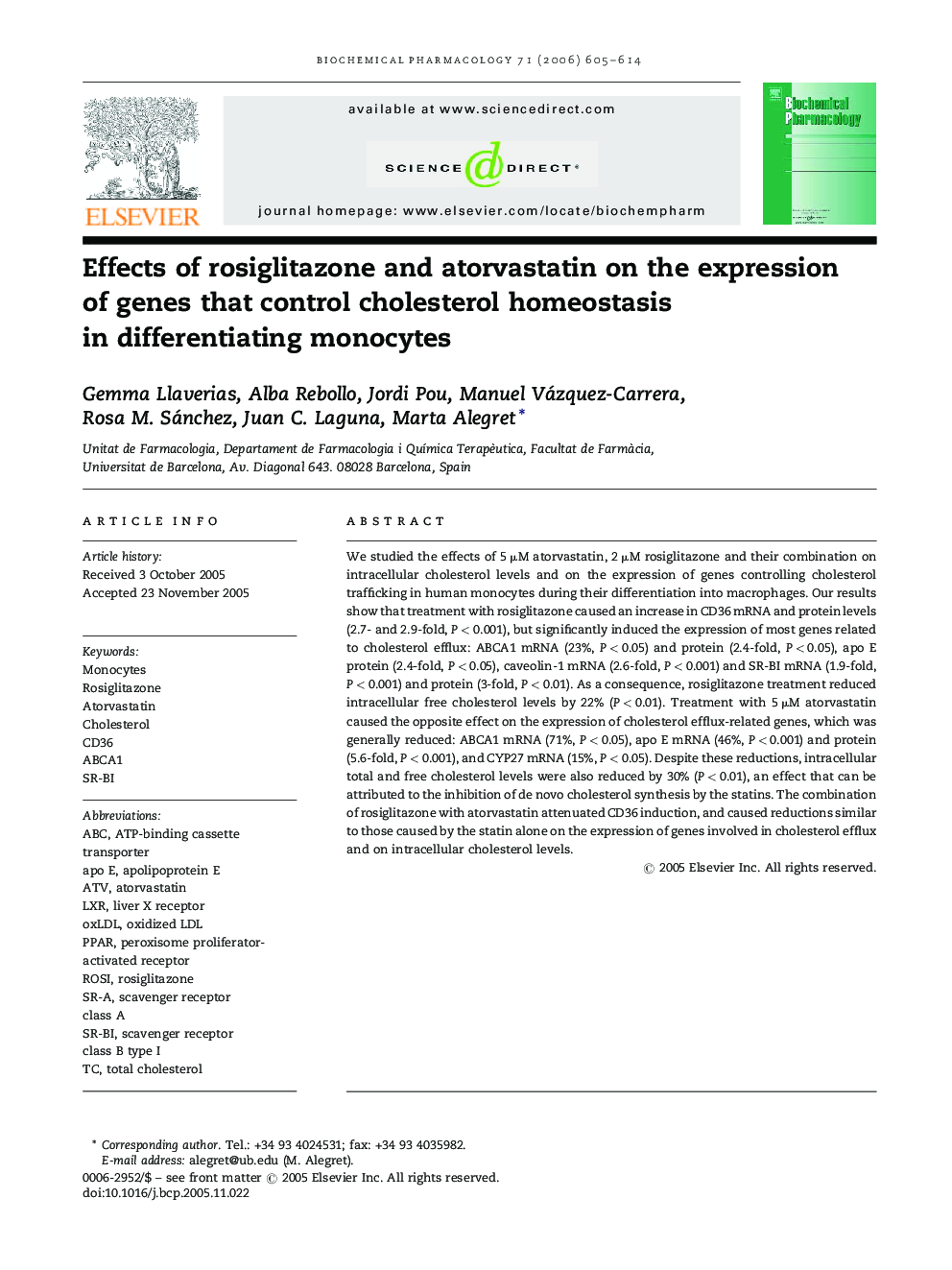| Article ID | Journal | Published Year | Pages | File Type |
|---|---|---|---|---|
| 2515339 | Biochemical Pharmacology | 2006 | 10 Pages |
We studied the effects of 5 μM atorvastatin, 2 μM rosiglitazone and their combination on intracellular cholesterol levels and on the expression of genes controlling cholesterol trafficking in human monocytes during their differentiation into macrophages. Our results show that treatment with rosiglitazone caused an increase in CD36 mRNA and protein levels (2.7- and 2.9-fold, P < 0.001), but significantly induced the expression of most genes related to cholesterol efflux: ABCA1 mRNA (23%, P < 0.05) and protein (2.4-fold, P < 0.05), apo E protein (2.4-fold, P < 0.05), caveolin-1 mRNA (2.6-fold, P < 0.001) and SR-BI mRNA (1.9-fold, P < 0.001) and protein (3-fold, P < 0.01). As a consequence, rosiglitazone treatment reduced intracellular free cholesterol levels by 22% (P < 0.01). Treatment with 5 μM atorvastatin caused the opposite effect on the expression of cholesterol efflux-related genes, which was generally reduced: ABCA1 mRNA (71%, P < 0.05), apo E mRNA (46%, P < 0.001) and protein (5.6-fold, P < 0.001), and CYP27 mRNA (15%, P < 0.05). Despite these reductions, intracellular total and free cholesterol levels were also reduced by 30% (P < 0.01), an effect that can be attributed to the inhibition of de novo cholesterol synthesis by the statins. The combination of rosiglitazone with atorvastatin attenuated CD36 induction, and caused reductions similar to those caused by the statin alone on the expression of genes involved in cholesterol efflux and on intracellular cholesterol levels.
